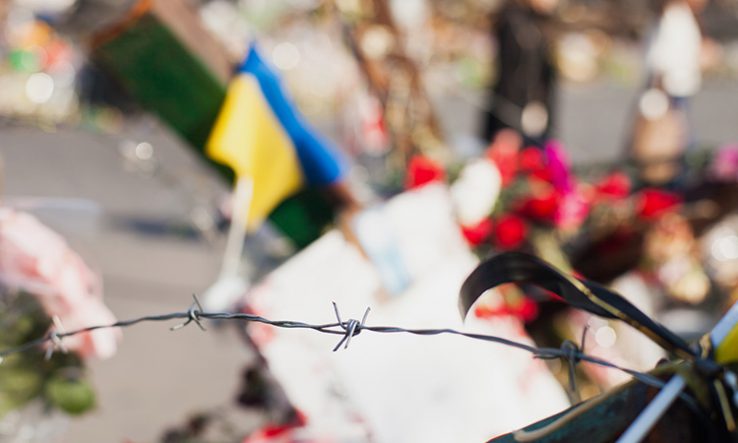
Denmark, Norway and Sweden condemn invasion of Ukraine
The governments of Denmark, Norway and Sweden have called on universities to sever their formal ties with Russia and Belarus, in response to Russia’s invasion of Ukraine.
During a press briefing on 2 March, Sweden’s minister of education, Anna Ekström, urged the country’s higher education institutions to suspend all collaborations with government institutions in Russia and Belarus. The minister, however, did not recommend ending cooperation with individual researchers.
“Many academics in Russia also openly criticise the country’s actions, and it is important that individual Russian and Belarusian researchers are not equated with government institutions,” she said.
However, Ekström warned that individual contacts and collaborations should be in accordance with the Swedish and European political positions. “Universities and authorities are urged to pay special attention to the security policy aspects of cooperation in various subject areas. Sweden should not have educational and research collaborations that support the Russian government,” she said.
Ekström’s statement was preceded by an announcement from the president of Stockholm University, Astrid Söderbergh Widding, who issued a moratorium on cooperation with Russian universities a few days earlier. Widding, however, also advocated for a continuation of individual collaboration.
“It is of the utmost importance to keep such collaborations and contacts alive, to maintain a link with the Russian research community and the many people who oppose what is happening there and do not support the war in Ukraine,” she wrote in a blog post on 28 February.
Cooperation halted
In Denmark, the minister for higher education and science, Jesper Petersen, wrote to all universities and higher education institutions on 2 March, calling for an immediate suspension of education and research cooperation with institutions in Russia and Belarus. “This will be a clear signal that military aggression results in isolation from the international community,” the minister said.
Universities Denmark, the organisation of the eight universities in the country, announced the same day that its members would follow the government’s request.
In Norway, both campus newspapers of the University of Oslo and the Norwegian University of Science and Technology (NTNU) wrote that state secretary Oddmund Løkensgard Hoel had told them on Tuesday that all academic collaboration with Russian partners should cease. According to the articles, Hoel also stressed that the decision applies only to institutional cooperation.
“Academic activities shall be free. It is not Russian scientists who have invaded Ukraine,” he told the Universitetsavisa newspaper. “To the extent that researcher-to-researcher collaboration is practically possible, we do not intend to put obstacles in the way.”
At the time this article went online, Finland was the only country that had not officially asked its universities to stop collaborating with Russia. However, the Finnish minister of education, Li Andersson, strongly condemned Russia’s invasion of Ukraine in a statement.
The Scandinavian moves follow hot on the heels of similar decisions by Germany and the EU. On 25 February, Germany’s science organisations announced they would freeze cooperation with Russia. Meanwhile, the European Commission announced on 2 March that it would “suspend all research and innovation cooperation programmes” with the country.